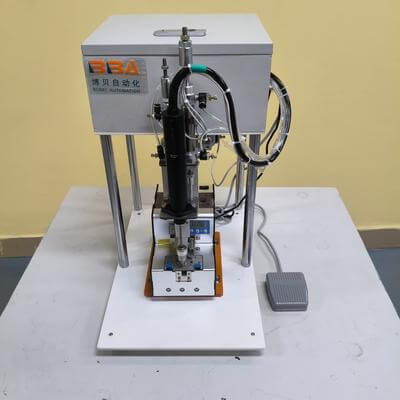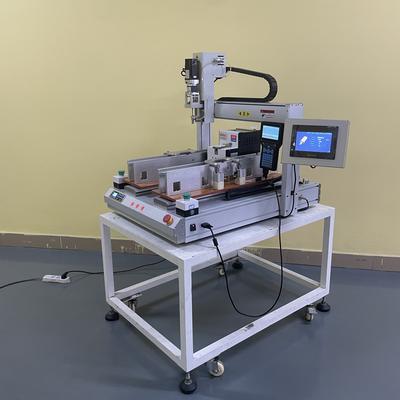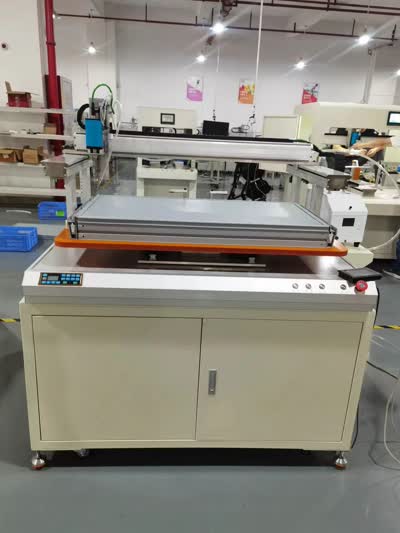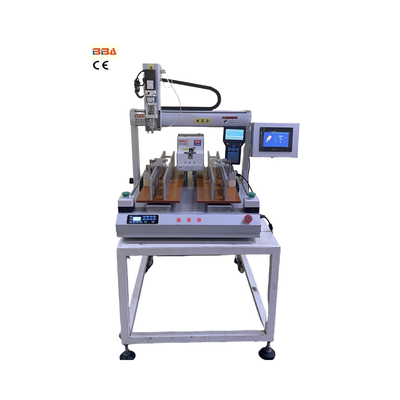Vendor Reliability & Technical Support for Industrial Automation | Guide
| Product Name | Applicable industries |
| Auto Screwdriver Machine | Smartphone Manufacturing |
Evaluating Vendor Reliability and Technical Support
In the fast-paced world of industrial automation, selecting a product vendor goes far beyond comparing initial prices and basic specifications. The long-term success and stability of your operations depend on two critical, often underestimated factors: vendor reliability and the quality of their technical support. A failure in either area can lead to significant downtime, costly repairs, and project delays, negating any upfront savings. Therefore, a meticulous evaluation process is essential for any automation engineer or procurement manager.
Key Indicators of a Reliable Vendor
Vendor reliability is built on a foundation of consistency, quality, and proven performance. When assessing potential partners, several key indicators should be thoroughly examined.
First, investigate the company’s track record and market presence. How long have they been in business? A long-standing history often suggests stability and experience in navigating industry challenges. Look for case studies, white papers, or documented applications of their products in scenarios similar to yours.
Second, scrutinize their product quality and manufacturing standards. Do they adhere to international quality certifications like ISO 9001? What are their internal quality control processes? Reliable vendors are transparent about their manufacturing rigor and can provide detailed documentation. Furthermore, examine the mean time between failures (MTBF) for their critical components. A higher MTBF indicates a product designed for longevity and reduced downtime.
Third, assess their supply chain stability. In an era of global disruptions, a vendor's ability to deliver products on time is paramount. Inquire about their inventory management, component sourcing strategies, and contingency plans for supply chain interruptions. A reliable partner has a resilient logistics network to ensure consistent product availability.
The Critical Role of Technical Support
Even the most reliable products may eventually require assistance. This is where exceptional technical support becomes invaluable. It is not merely a service but a partnership that ensures your systems remain operational.
Evaluate the accessibility and expertise of the support team. Is support available 24/7, especially for mission-critical applications? What are the communication channels—phone, email, remote access? More importantly, the support engineers should possess deep product knowledge and practical experience, enabling them to diagnose and resolve issues quickly and effectively.
Another crucial aspect is the availability of comprehensive resources. A strong vendor provides an extensive online portal with easy access to documentation, manuals, CAD drawings, firmware updates, and a searchable knowledge base. The presence of detailed troubleshooting guides and video tutorials empowers your in-house team to solve common problems independently, reducing resolution time.
Finally, consider the vendor’s value-added services. Do they offer customized training programs for your engineers? Will they provide on-site assistance for complex installations or system integrations? Vendors who invest in educating their customers demonstrate a commitment to a long-term collaborative relationship rather than a simple transactional one.
A Proactive Approach to Evaluation
To make an informed decision, adopt a proactive evaluation strategy. Request references and actually contact existing customers, particularly those in your industry. Their firsthand experiences with product performance and support responsiveness are incredibly telling.
Before making a large purchase, consider starting with a small pilot project. This allows you to test the product's performance in your specific environment and evaluate the vendor's support capabilities in a real-world scenario without full-scale risk.
Ultimately, choosing a vendor for industrial automation products is a strategic decision. By prioritizing proven reliability and robust, accessible technical support, you invest not just in a product, but in a partnership that will safeguard your productivity, minimize risk, and contribute to the seamless operation of your automated systems for years to come.



